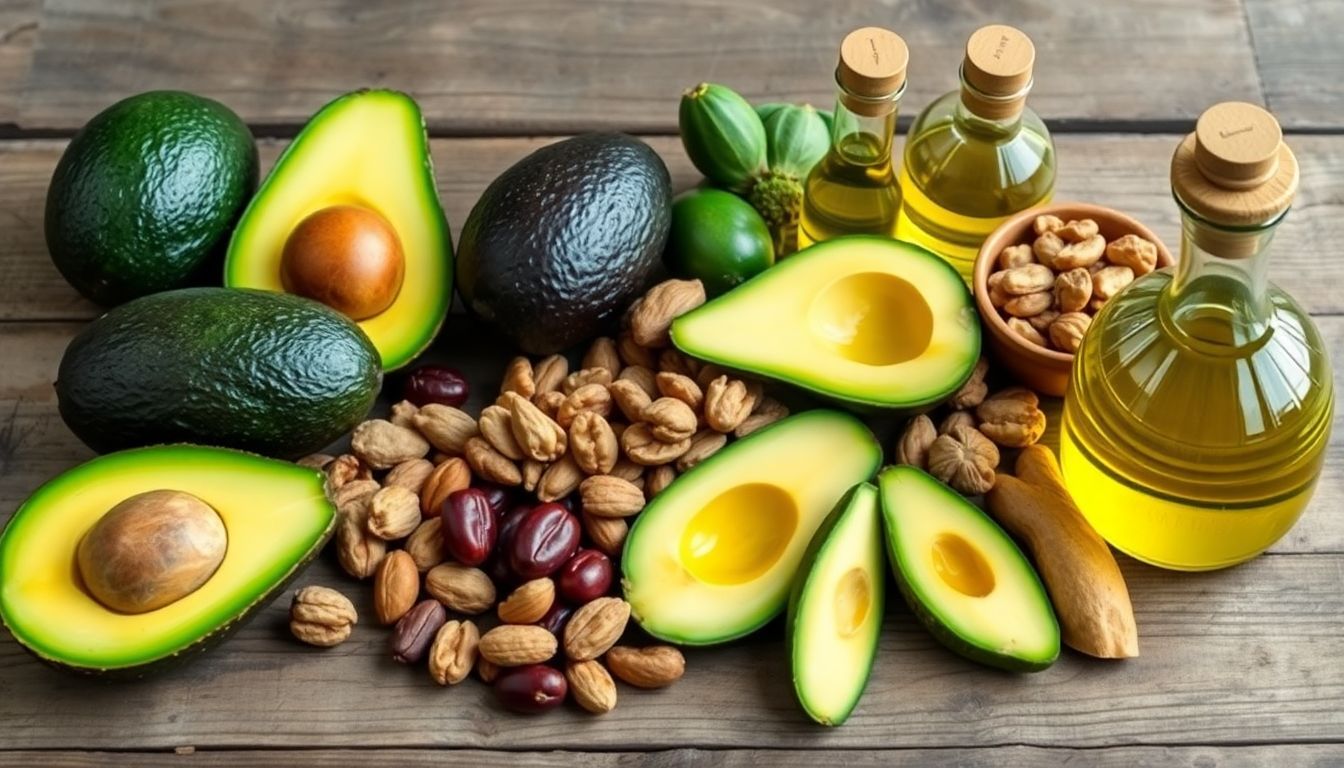Many people worry that eating fats will make them gain weight. But not all dietary fats are bad—some support heart health and overall wellbeing. This blog will explain the truth about healthy and unhealthy fats, clearing up common misconceptions.
Thank you for reading this post, don't forget to subscribe!Keep reading to learn how to include good fats in your diet!
Key Takeaways
- Not all fats are bad. Unsaturated fats from olive oil, nuts, seeds, and fatty fish support heart health and help absorb vitamins like A, D, E, and K.
- Trans fats are harmful with no nutritional value. The FDA banned partially hydrogenated oils in 2015 due to their link to heart disease.
- Omega-3 fats from salmon or walnuts reduce inflammation and prevent chronic diseases like stroke. Eat fatty fish 1–2 times per week for benefits.
- Low-fat diets often replace fat with sugar or refined carbs. This can cause insulin resistance and weight gain over time.
- Real foods like vegetables, whole grains, and healthy fats work better than supplements for older adults’ overall nutrition needs.
Misconceptions About Dietary Fats
Many people think eating fats always leads to weight gain—but this is not true. Fats have a role in your diet and can even support good health when chosen wisely.
The myth that all fats are bad
Not all fats are harmful. Healthy fats, like monounsaturated and polyunsaturated fats, support brain health and hormone production. Olive oil, nuts, seeds, and fatty fish provide these “good” fats.
They also help your body absorb fat-soluble vitamins like A, D, E, and K.
Low-fat diets often replace dietary fat with sugar or refined carbohydrates. This can lead to insulin resistance and weight gain over time. Moderation of saturated fats is recommended in balanced diets but avoiding all types of fat entirely isn’t wise for long-term health or energy needs.
Misunderstanding fat’s role in weight gain
All fats are not created equal, and they don’t all lead to weight gain. Many people think eating fat automatically makes you pack on the pounds. This is a myth. Fat has nine calories per gram—a higher calorie count than protein or carbs—but it doesn’t mean fat alone causes weight gain.
Cutting out dietary fat often leads to eating more refined carbohydrates or sugary foods. These spike blood sugar levels and trigger insulin resistance, which can lead to storing extra energy as body fat.
Studies from institutions like NIH highlight how choosing unsaturated fats—like those found in olive oil or fatty fish—can actually improve cholesterol levels and support cardiovascular health without causing weight issues.
The type of fat matters more than the amount.
Types of Fats and Their Roles in a Healthy Diet
Fats play different roles in your body, depending on their type. Some support heart health, while others may increase risks like high cholesterol or weight gain.
Saturated, unsaturated, and trans fats
Fats in food come in three main types: saturated, unsaturated, and trans fats. Each affects your body differently and plays a role in health.
- Saturated fats are found in foods like whole milk, fatty meats, butter, and coconut oil. They can raise LDL cholesterol (bad cholesterol), increasing the risk of heart disease. The American Heart Association says saturated fat intake should be less than 6% of daily calories.
- Unsaturated fats are considered healthy fats. You can find them in avocado, olive oil, nuts, seeds, and fatty fish. They help lower the risk of cardiovascular disease by improving good cholesterol (HDL) levels.
- Trans fats are bad for the body with no nutritional value. These are common in fried foods, margarine, and processed snacks. The FDA banned partially hydrogenated oils (a source of trans fats) in 2015 due to their link to heart disease.
Understanding these facts helps you make smarter food choices for better health!
Importance of omega-3 fatty acids
Omega-3 fatty acids support heart health and reduce inflammation. They help prevent chronic diseases, including heart disease and stroke. Fatty fish like salmon or mackerel offer rich sources of omega-3s.
For vegans, algal oil provides a great alternative with DHA benefits.
A healthy balance between omega-6 and omega-3 fats is key. Too much omega-6 may cause inflammation over time. The American Heart Association suggests eating fatty fish 1–2 times per week for optimal benefits.
Foods like walnuts, flaxseeds, and leafy greens also contribute to meeting your dietary needs.
Foods provide more effective omega-3 benefits than supplements.

Practical Tips for Incorporating Healthy Fats
Use oils like olive oil or canola oil instead of margarine for cooking. Add foods like fatty fish, nuts, or seeds to meals for a boost of omega-3s and other nutrients.
Choosing the right fats for cooking
Olive oil and coconut oil are great options for cooking. Olive oil, rich in monounsaturated fats, works well for sautéing or roasting vegetables. Coconut oil adds flavor to dishes but contains more saturated fat, so use it sparingly.
For frying, canola oil is a stable choice due to its high smoke point. Incorporate nuts or nut oils like walnut or sunflower seed in dressings for bold flavors. Adding avocados offers creamy texture and healthy fats too—perfect for spreads or toppings.
Balancing fat intake with other nutrients
Mix fats with high fiber foods like whole grains and vegetables. This helps regulate blood glucose levels and promotes better digestion. Pairing healthy fats, such as olive oil or avocado, with complex carbohydrates ensures a steady energy source without spiking insulin.
Stick to appropriate portion sizes. Use about two tablespoons of nut oils or one ounce of nuts for snacks or meals. Combine fat-rich foods like fatty fish with lean proteins and starchy foods to support weight management and overall nutrition balance…
Now, explore what older adults truly need in their diets!
Healthy Diet vs. Trendy Supplements: What Older Adults Really Need
A balanced diet gives older adults what they need more than trendy supplements. Fresh vegetables, whole grains, lean proteins, and healthy fats like olive oil or fatty fish provide essential vitamins and nutrients.
These foods also come with fiber to help digestion—something missing in most pills.
Supplements can’t replace real food’s benefits. For example, omega-3 from fish supports heart health better than capsules do alone. Eating 30 grams of dietary fiber daily can improve glucose response and cut the risk of type 2 diabetes or heart disease.
Whole foods work with your body naturally, while reliance on excess supplements may disrupt balance over time.
Conclusion: Embracing Fats for Balanced Nutrition
Eating fat doesn’t mean getting fat. Healthy fats like olive oil, nut oils, and fatty fish support your body. They help with heart health, energy, and even weight management. Balance is key—choose good fats and limit the bad ones.
Your diet can be both tasty and healthy!
